Presentation of the Hellenic Music Research Laboratory at the Athens Concert Hall
On February 19, the presentation of the Laboratory for the Research of Hellenic Music, of the Department of Music Studies of the University of Athens (NKUA) was successfully held in the "MusiXLab" hall of the "Lilian Voudouri" Music Library of the "Friends of Music Society" at the Athens Concert Hall.
During the event, the Laboratory's work was presented by:
- Nikos Maliaras, Professor and Director of the Laboratory, who presented the general characteristics of the laboratory, its objectives, collaborations, and the opportunities for its use by researchers, musicians, and students
- Tasos Kolydas, Laboratory Teaching Staff at the Department, who focused on the digital dimension of the laboratory, with emphasis on the digital repository "Polymnia," presenting its operation and structure
- Magdalini Kalopana, Laboratory Teaching Staff at the Department, who discussed the methodology and protocols for acquisition, processing, and study of archives within the Laboratory and the digital repository, as well as collaborations with individuals and organizations in the context of university courses
- Valia Christopoulou, Seconded Educator and Apostolos Palios, distinguished piano soloist and laboratory associate, who presented the recording of works by composer Giorgos Sisilyanos.
The Role of Ontologies in Managing Digital Collections (Athens Concert Hall)
The digital age is revolutionizing how we manage and analyze primary sources. In the field of musicology, this transformation holds particular significance as digitization converts all types of materials - from handwritten scores to audio files - into digital data, creating a unified field for managing heterogeneous documents.
The Laboratory for the Study of Greek Music at the University of Athens, responding to contemporary challenges, has developed the digital repository "Polymnia". This innovative platform goes beyond simple digital storage. "Polymnia" is a dynamic system where scores, texts, images, and sounds are interconnected in ways that expand the possibilities for research and teaching.
At the conference "The Significance of Ontologies in Digital Collections Management", I presented how data modeling and knowledge representation function as fundamental methodological approaches in the repository. I analyzed how these approaches shape a modern way of scientific thinking and data organization, facilitating interdisciplinary approaches and use of materials.
Music Encoding Initiative: A Tool for Music Librarians and Researchers
A new online video on thematic catalogs and digital critical editions was published by the Greek department of IAML. The seminar was given by Ilias Kyriazis, Curator of Cultural Data, University of Applied Sciences Potsdam, Germany. Ilias provided a comprehensive introduction to the MEI, which is a standard format for encoding music notation, metadata, and other related information in digital form.
Of particular interest was, among other things, the discussion on the different music coding technologies and their characteristics that followed. In the discussion in which I also participated, special mention was given to the inability of the MEI to describe the notation of Byzantine music and the effects of this deficiency on Greek musicology and music librarianship. I tried to underline - perhaps with a bit of exaggeration - the importance of collaboration between different groups and protocols for the progress of music librarianship, as well as the need to develop a model for the symbolic representation of Byzantine music.
Classical guitar in Greece during the second half of the twentieth century: aspects of the transformation of a musical instrument from the repertoire point of view
My article entitled “Classical guitar in Greece during the second half of the twentieth century: aspects of the transformation of a musical instrument from the repertoire point of view” was recently published in the proceedings of the 9th Interdepartmental Musicological Conference entitled "Variations, arrangements, transformations" (Hellenic Musicological Society, Thessaloniki 2021).
The development of the guitar in Greece during the second half of the twentieth century is a special phenomenon, both in terms of the intensity with which it happened, as well as the way in which a musical instrument changed its character. Among the goals of the guitarists was the transformation of the instrument from an accompaniment to a solo one and its recognition as an instrument of art music. Repertory choices were a key aspect for achieving these goals.
Apostolos Kostios (1935-2021)
The news of the ousting of Apostolos Kostios, Emeritus Professor of the University of Athens, is very sad. His contribution and presence was decisive for the musical things in Greece in the scientific and artistic field. His presence was also decisive for those who were lucky enough to attend his classes and get to know him closely. The passion with which he taught, inspired a generation of young scientists to turn to musicological research and love Greek art music. The same passion characterized his communication with people; his speech had the power to captivate you, to electrify you. An integral character, with a rare ethos, it was inevitable to be a role model for his students and a point of reference for his associates. His funeral took place in a close family circle.
Music Engraving Conference at Mozarteum Music University in Salzburg
The conference entitled “Music Engraving in the 21st Century – Developments and Perspectives” is held in Mozarteum Music University in Salzburg, Austria, January 17th – 19th, 2020. According to the conference invitation “computers are everywhere today. Even in the music world, computers have become a tool used for many purposes; especially for music engraving, they are now indispensable. The old craft of music engravers has become extinct, and we now rely on programs to apply the knowledge and aesthetics accumulated over centuries. This brings opportunities and challenges that have to be considered as we head towards the future of musical applications in the digital age.” See the program of the conference
Tassos Kolydas gave a talk on January 17th, entitled “Locked in time: Utilizing blockchain technology for the long-term preservation of engraved music” . The source code for the presented examples is available at github.
Digital preservation paper on Springer
The paper entitled Timestamping Metadata Using Blockchain: A Practical Approach was published in the Springer Nature series.
Abstract: Long-term preservation of digital information requires confidence in the credibility and ability of digital archives and systems to consistently provide accessible and usable content. Ensuring that the provided information has remained unchanged over time is a particular challenge. Trusted timestamping is an effective method that allows anyone to prove without any doubt that specific content existed at a particular date and time. A practical approach for trusted timestamping using the Ethereum blockchain is presented here. A complete metadata record is stored as transaction input data along with a document hash digest. The approach is uncomplicated, human and machine readable, self-explanatory, and modular. It supports metadata preservation and copyright protection of digital documents applying verification without disclosure. The approach aims at extending current digital archives and systems using existing, well-tested technology.
Keywords: Trusted Timestamping, Ethereum Blockchain, Digital Preservation, Copyright Protection
Exploring digital score usage by Greek composers
Tasos Kolidas and Nikos Poulakis presented a paper entitled “From handwritten sheet music to digital notation: Exploring the way Greek Composers compose their works using digital score". The presentation took place on Thursday, November 21, 11:00, at the main building of the University of Athens (Propylaea), in the context of the 11th Interdisciplinary Music Conference, "Innovation and Tradition (commemorating the 70th anniversary of Nikos Skalkota's death)," under the auspices of the Hellenic Music Society.
The purpose of the research is to investigate the way Greek composers today depict their compositions. Specifically, to what extent do they use the musical manuscript as a means of capturing a composition versus the digital score and what steps do they follow from conception of the original idea to production of the final "autograph".
Expected results of the research include outlining the use of digital scores by Greek composers and the process used to imprint a composition on musical notation. The resulting data is expected to contribute to the updating of research tools in the field of historical and systematic musicology and the reform of curricula in composition courses.
Paper on Metadata and Blockchain Technology
Tassos Kolydas presented a paper at the 13th International Conference on Metadata and Semantics Research, Rome, Italy, on October 29th, 2019.
The paper was entitled: Timestamping Metadata Using Blockchain: A Practical Approach
MTSR is an annual international inter-disciplinary conference, which brings together academics, researchers and practitioners in the specialized fields of metadata, ontologies and semantics research. The conference provides an opportunity for participants to share knowledge and novel approaches in the implementation of semantic technologies across diverse types of information environments and applications.
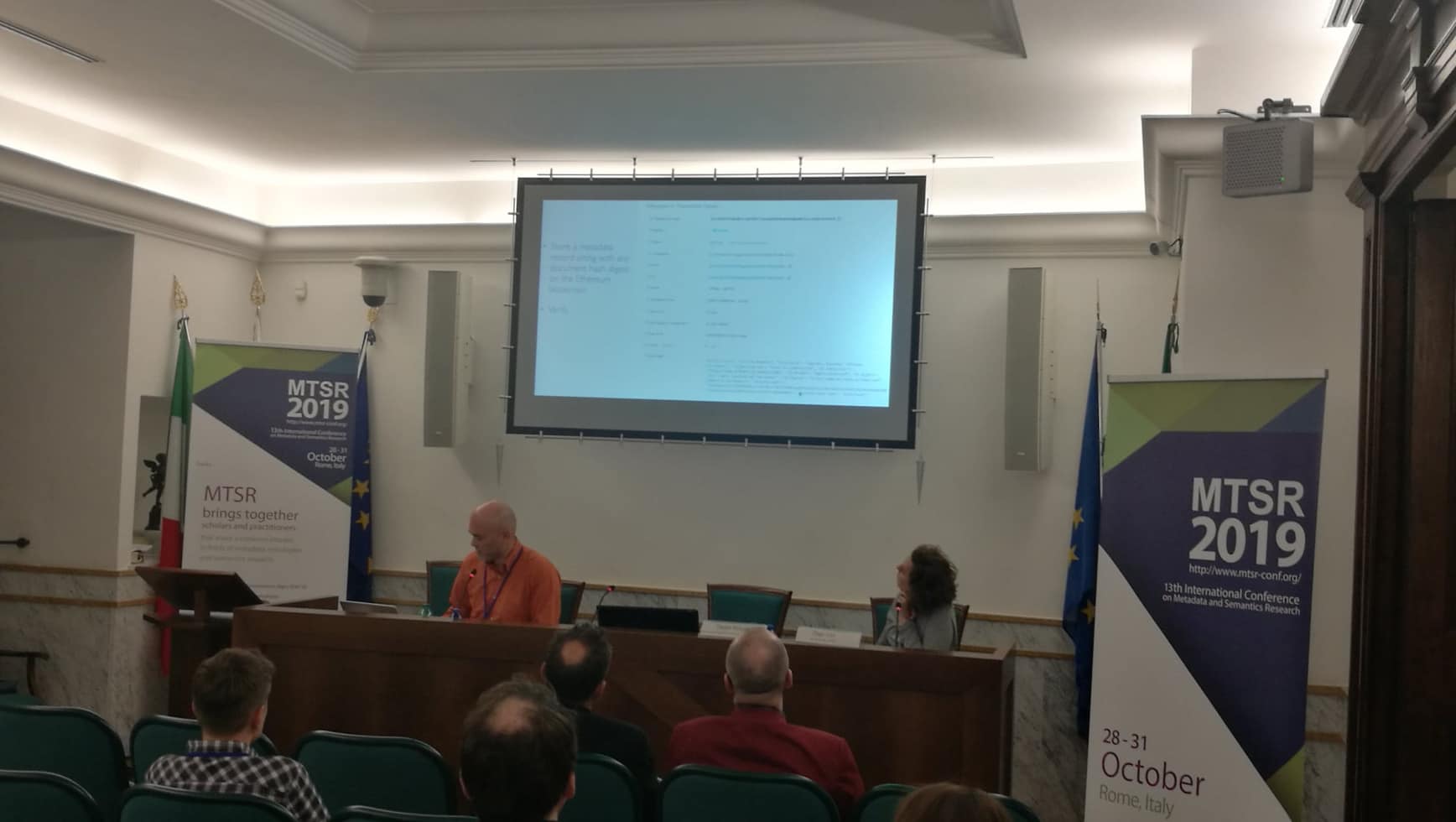
Lecture on Blockchain Technology
Title: Using blockchain technology for preserving digital documents in music libraries and archives
Short abstract:
Long-term preservation of digital information requires trust in the credibility and ability of the organization to provide consistently unchanged documents. Ensuring that the information provided has remained unchanged over time is a difficult challenge, if we take into account the many factors that can cause the modification of a digital document. The aim of the lecture is to suggest methods from the cryptography domain for digital documents preservation. In particular, blockchain technology is proposed for reliable trusted timestamping of documents in a way that is not questionable, without the need for a trusted 3rd party to guarantee the accuracy of the data. No proceedings are going to be published from the conference.
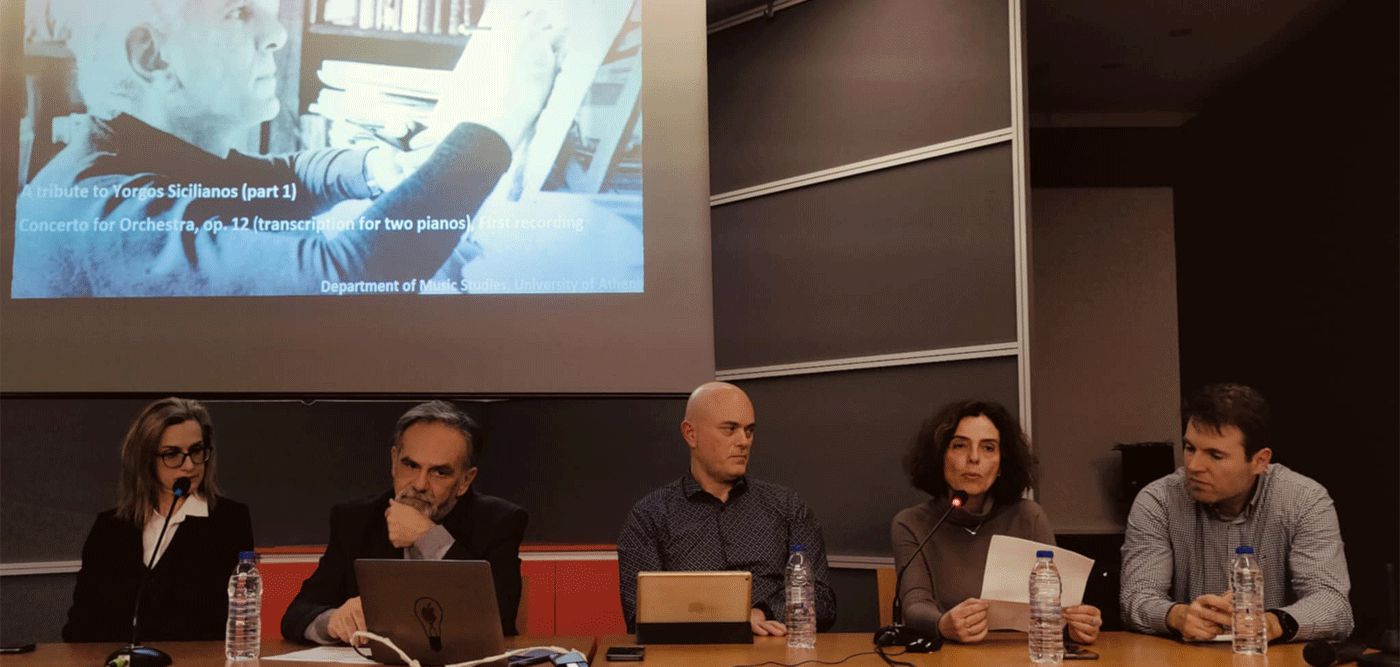
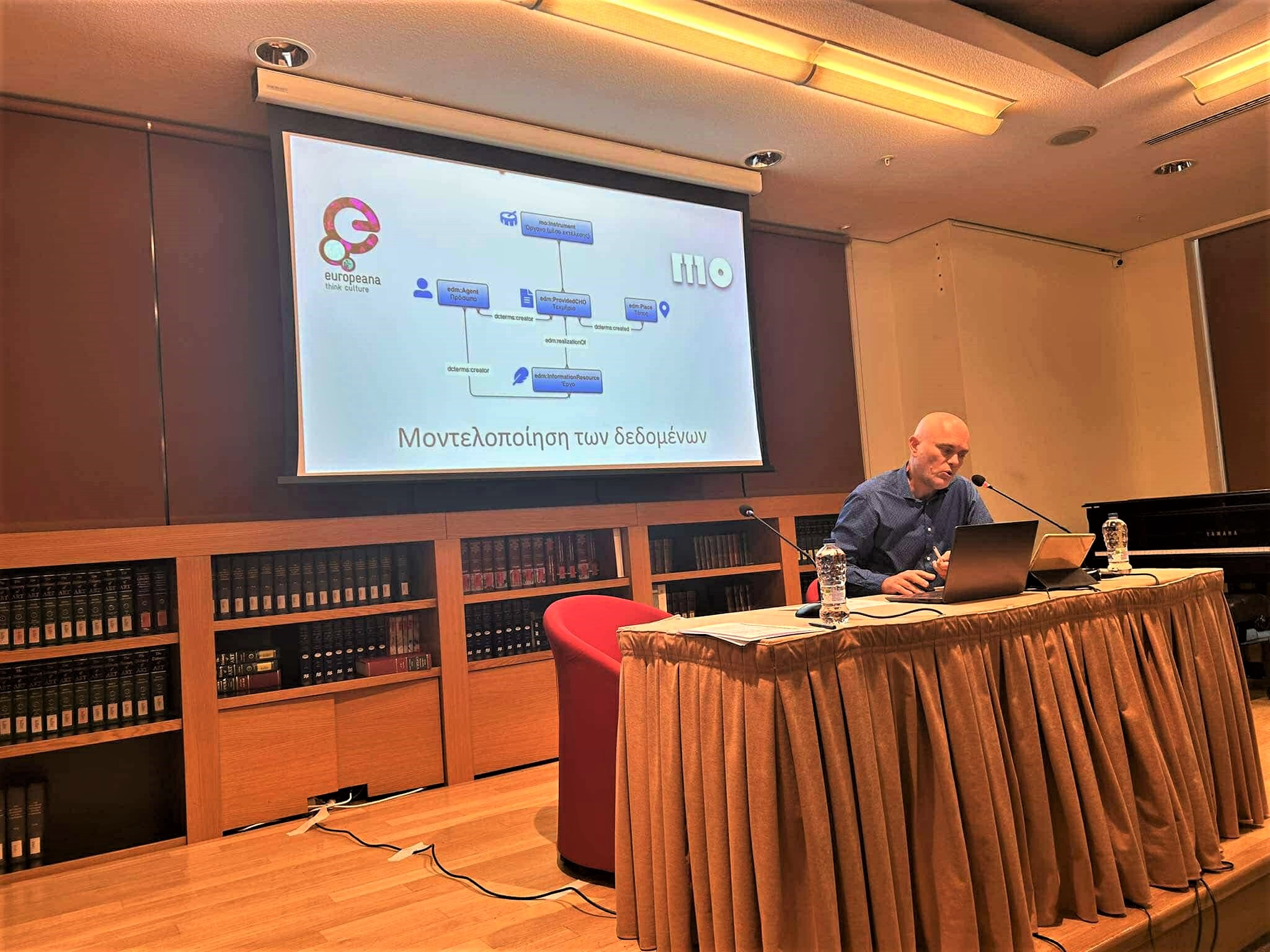
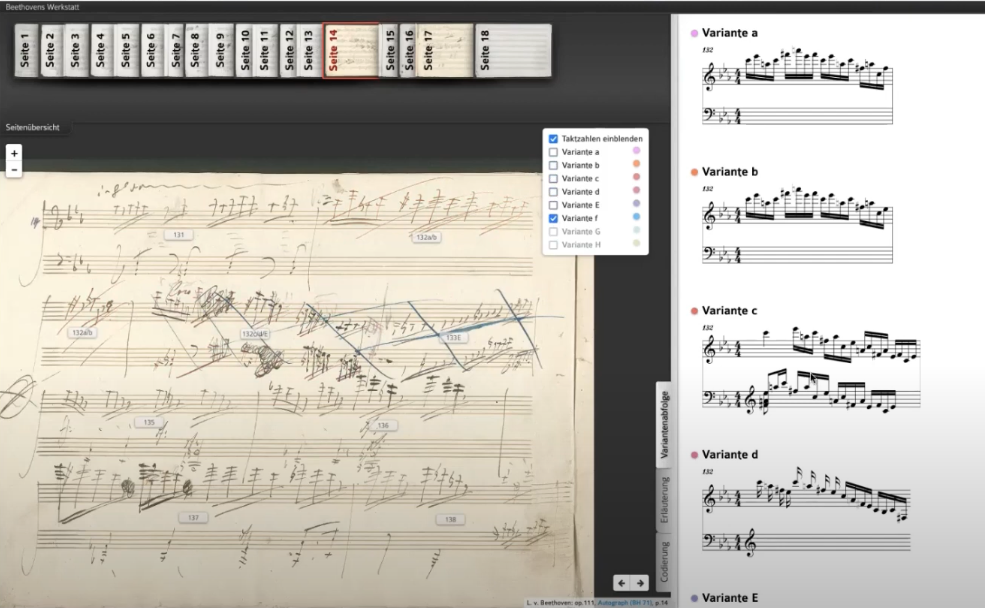
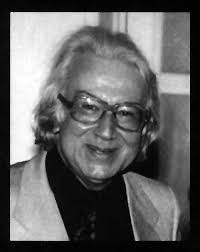
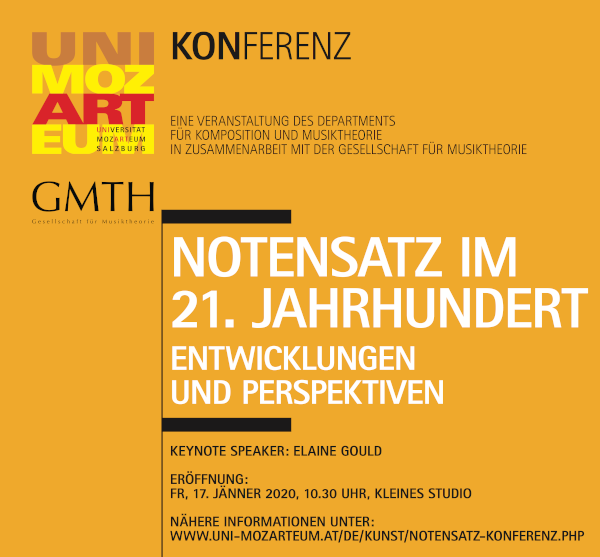
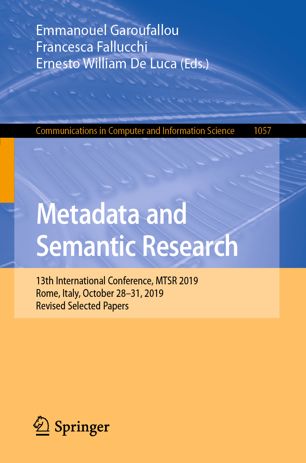
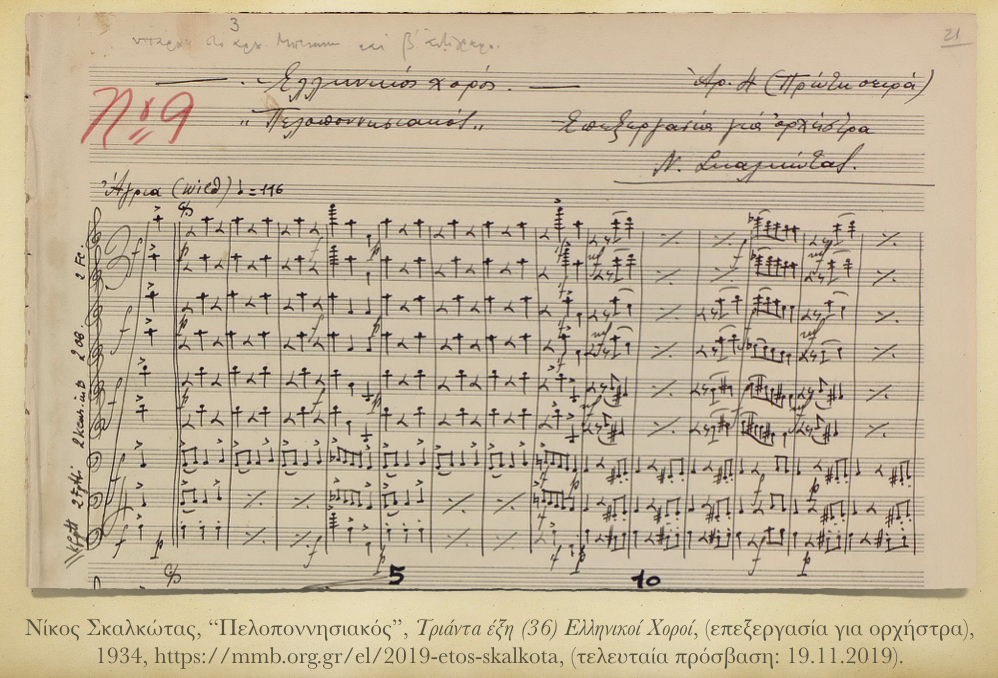
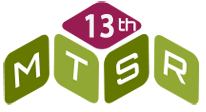
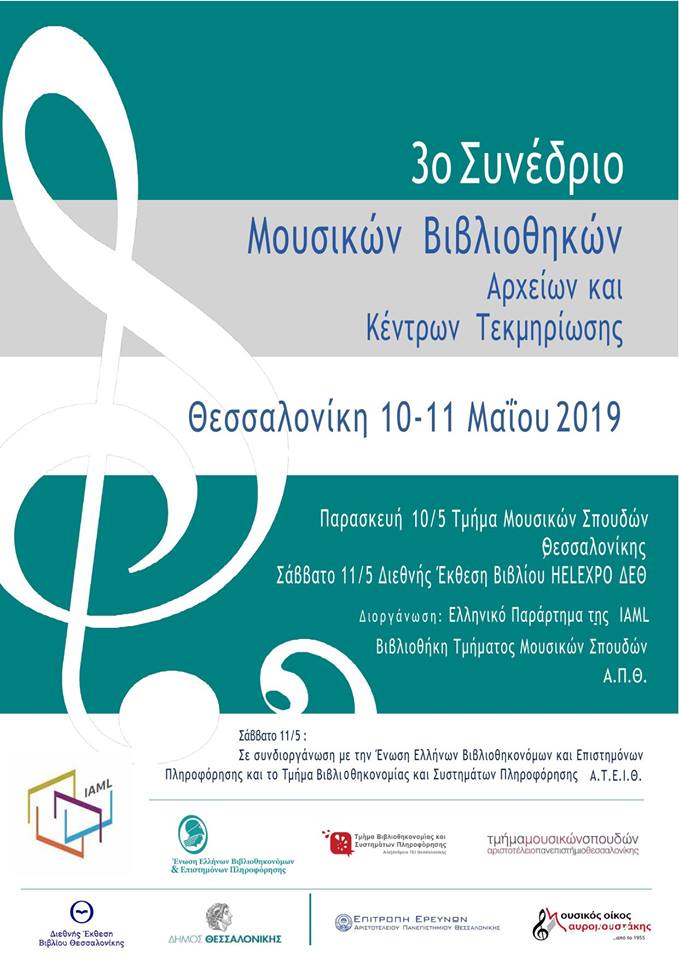
 Please wait...
Please wait...